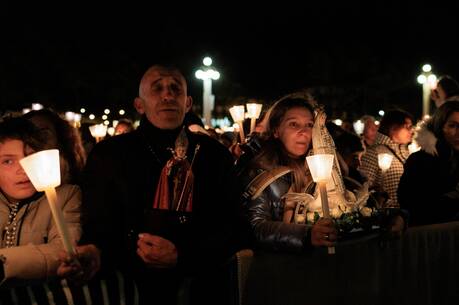Bishops from around the world left the historic Vatican summit on the protection of minors in February with a clear mandate from Pope Francis to wage an “all-out battle” against the scourge of sexual abuse in the church and society. Some Catholics expressed disappointment that the meeting itself seems not to have produced the “concrete and effective measures” the pope called for in his opening speech. But even once the Vatican acts to hold church leaders accountable, Francis has made clear that protecting children and healing the church will require a conversion of heart and a cultural change deeper than any top-down decree can achieve.
A new report from the Leadership Roundtable provides a valuable roadmap for what the change might look like. The report provides 50 recommendations for U.S. bishops and lay leaders to address the “twin crises” of abuse and “leadership failures that covered up the abuse.” The document, “Heal the Body of Christ,” came out of a February gathering of clergy (including three cardinals), abuse experts and laypeople—a process that embodied one of the key takeaways of the report: the need for “co-responsibility” in the governance of the church.
Lay Catholics are ready to lend their expertise, leadership and prayers to heal the wounds inflicted on children and the church by abusers.
The report calls for shared responsibility between lay and ordained Catholics in structures to investigate and hold accountable bishops accused of abuse and its cover-up; the selection and appointment of bishops; and seminary formation and the ongoing training of clergy. Lay Catholics bring to the church expertise in management, accounting and communications from the corporate world that can help restore trust in the ability of bishops to respond to allegations of misconduct in a decisive and transparent manner. And as mothers and fathers, they approach the task of protecting children with “the anguish and righteous anger of those who have been sexually abused, their families, and communities,” in the words of the report.
The report also called for a coordinated national effort to release the names of credibly accused priests and religious, among other steps, as a way to advance the principles of transparency, accountability, competency, justice and trust. These recommendations are worthy of serious consideration.
The U.S. bishops who attended the Vatican summit returned to a church that is impatient for decisive action. A growing number of Catholics do not trust that the bishops can implement the needed reforms. A new poll by Gallup found 37 percent of Catholics have considered leaving the Catholic Church because of the sex abuse crisis, up from 22 percent who said the same after the scandal first made national headlines in 2002 (see infographic on Page 14). The bishops need to ask for help from others in the church and cooperate with them to address this challenge. Fortunately, lay Catholics at every level are ready to lend their expertise, leadership and prayers to heal the wounds inflicted on children and the church by abusers and the leaders who failed to stop them.









